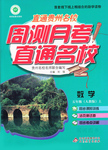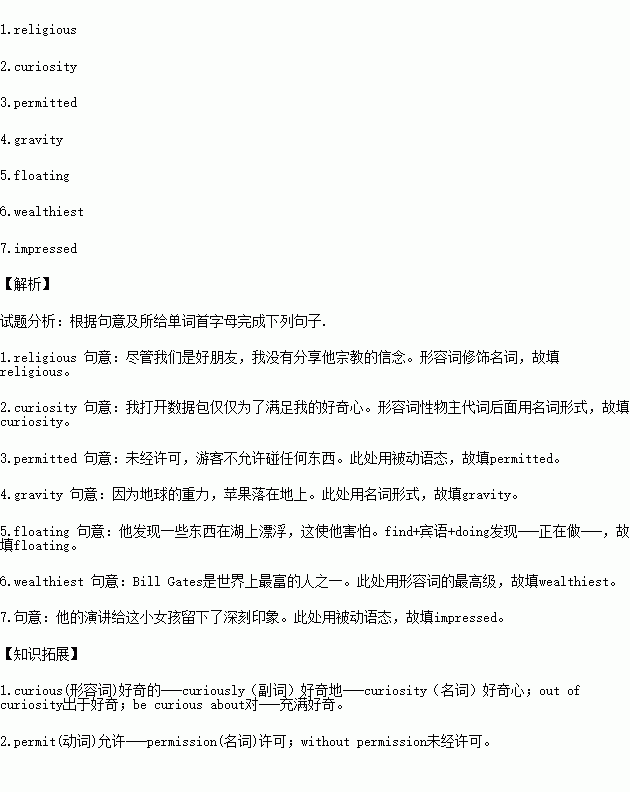题目内容
根据句意及所给单词首字母完成下列句子.
1.Although we are good friends, I don’t share her r________(宗教的) beliefs.
2.I opened the packet just to satisfy my c________(好奇心).
3.Visitors are not p________ (允许)to touch anything without permission.
4.Because of the earth’s g________ (重力), apples fall to the ground.
5.He found something f________(漂浮) on the lake, which frightened him.
6.Bill Gates is one of the w________(最富有的) persons in the world and devotes himself to helping people in trouble.
7.The little girl was i________(印象深刻) by his speech and made up her mind to become a speaker like him.
 直通贵州名校周测月考直通名校系列答案
直通贵州名校周测月考直通名校系列答案书面表达
你校将开展为期一周的艺术节,请你根据以下表格的内容,写一篇英语短文:
活动目的 | 培养学生对艺术的兴趣;增强学生的艺术鉴赏能力;让同学们交到更多朋友。 |
活动对象 | 全体学生 |
活动时间 | 11月20日至11月26日 |
活动地点 | 学校图书馆2楼 |
活动内容 | 美术老师张老师作一个主题为“关于艺术与生活”的演讲;欣赏名画和书法品 (calligraphy works);摄影作品大赛,获奖者均可获得数码 (digital) 相机一台。 |
注意:1. 词数100左右;
2. 可以适当增加细节,以使行文连贯。

